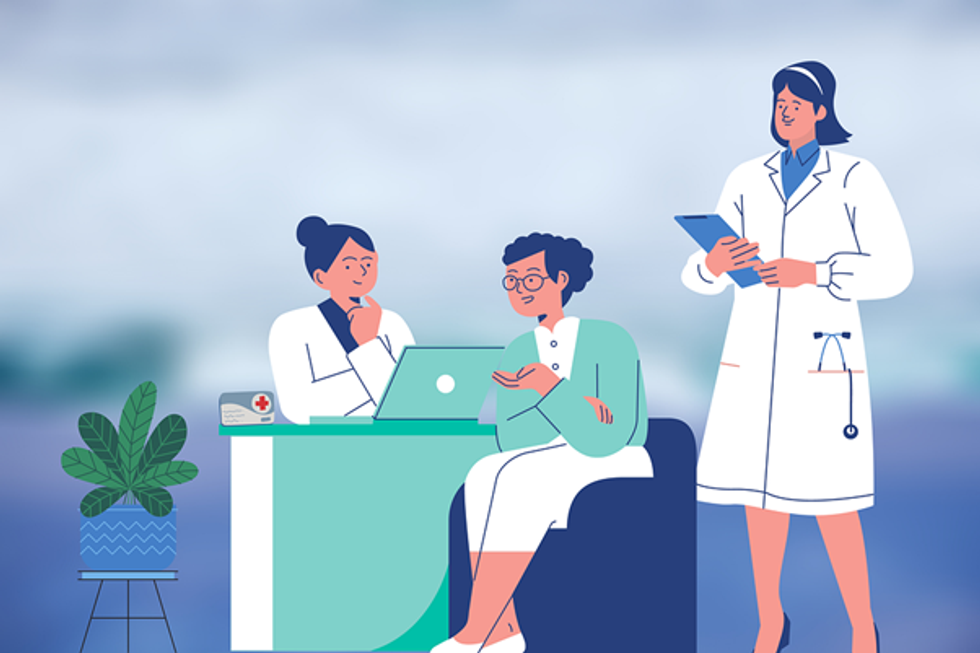Medical Aid : It's no secret that the world of work can be dangerous. Every day, workers are injured on the job, and in some cases, these injuries can be quite serious. If you're unfortunate enough to find yourself in this situation, it's important to know what steps to take to get the medical care you need.
There are several ways to get proper medical aid if you're injured at work, and each option has its own set of benefits and drawbacks.
Health Insurance
If your employer offers health insurance, this will likely be your first port of call when seeking medical care after a workplace injury. The main benefit of using your employer's insurance is that it will usually cover the majority of your medical expenses.
However, there are some drawbacks to this option. First, your employer's insurance may only cover treatment from specific doctors or hospitals. This can make it difficult to get the care you need on time. Second, your employer's insurance may not cover all of the costs associated with your injury, leaving you with a hefty bill.
Very often, workers consider obtaining private insurance, especially if they're working as ex-pats or freelancers. It is good to note that in these cases, private insurance would then be used in combination with their employer's insurance, giving them a greater degree of coverage. However, even if you're only insuring yourself, this insurance can be beneficial because you'll be able to choose your doctor, and you may have a greater range of coverage.
Workers' Compensation
Another option for getting medical care after a workplace injury is to file a claim with the Workers' Compensation Board (WCB). The WCB is a government-run organization that provides financial assistance to workers who are injured on the job.
The benefit of using the WCB is that it will cover all of your medical expenses, regardless of who was at fault for your injury. Additionally, the WCB can provide you with income replacement if you're unable to work due to your injury.
The downside of the WCB is that it can be a lengthy and complicated process to file a claim. Additionally, the WCB may not approve your claim if they determine that your injury was due to your negligence.
Support Groups
There are many different types of support groups available to workers who have been injured on the job. These groups can provide you with emotional support, as well as practical advice on how to deal with your injury. The main benefit of using a support group is that you'll be able to connect with other people who are going through the same thing as you. This can be a great source of support during a difficult time. Additionally, many support groups are free to join.
However, some support groups may only meet on a weekly or monthly basis, which may not be often enough for some people. Additionally, you may not feel comfortable sharing your story with a group of strangers.
Government Programs
Several government programs can provide financial assistance to workers who have been injured on the job. These programs can help to cover the cost of medical care, as well as lost wages. The main benefit of using a government program is that you're more likely to receive the financial assistance you need. Additionally, these programs are usually easy to apply for and they have a wide range of eligibility requirements.
The downside of government programs is that they can be underfunded, which can make it difficult to get the help you need. Additionally, these programs may only provide temporary financial assistance, which may not be enough to cover the long-term costs associated with your injury.
Charities
Many charities also offer financial assistance to workers who have been injured on the job. These organizations can help with medical bills, lost wages, and other expenses related to your injury.
Some of the most popular charities that offer assistance to injured workers include:
- The United Way: The United Way is a national organization that helps people in need. They offer a variety of programs and services, including financial assistance for medical bills and lost wages.
- The American Red Cross: The American Red Cross is another national organization that assists those in need. They offer a variety of programs and services, including financial assistance for medical bills and lost wages.
- The Salvation Army: The Salvation Army is a national organization that assists those in need. They offer a variety of programs and services, including financial assistance for medical bills and lost wages.
There are several different ways to get the medical care you need after being injured at work. If you're not sure where to turn, the six options outčined here should give you a good starting point for getting the help you need. Remember, it's important to seek treatment as soon as possible so that you can recover from your injury and return to work as soon as possible.












